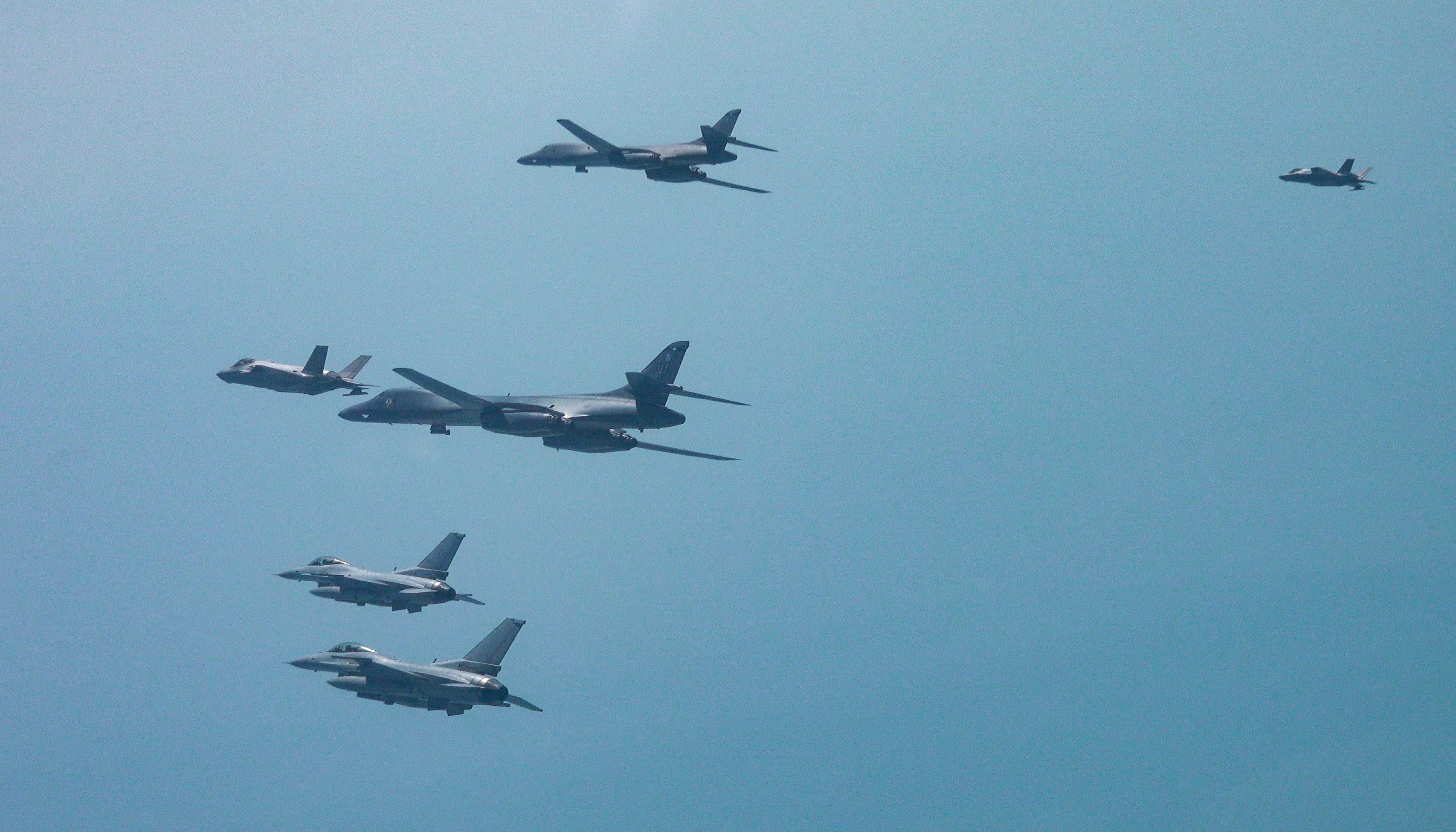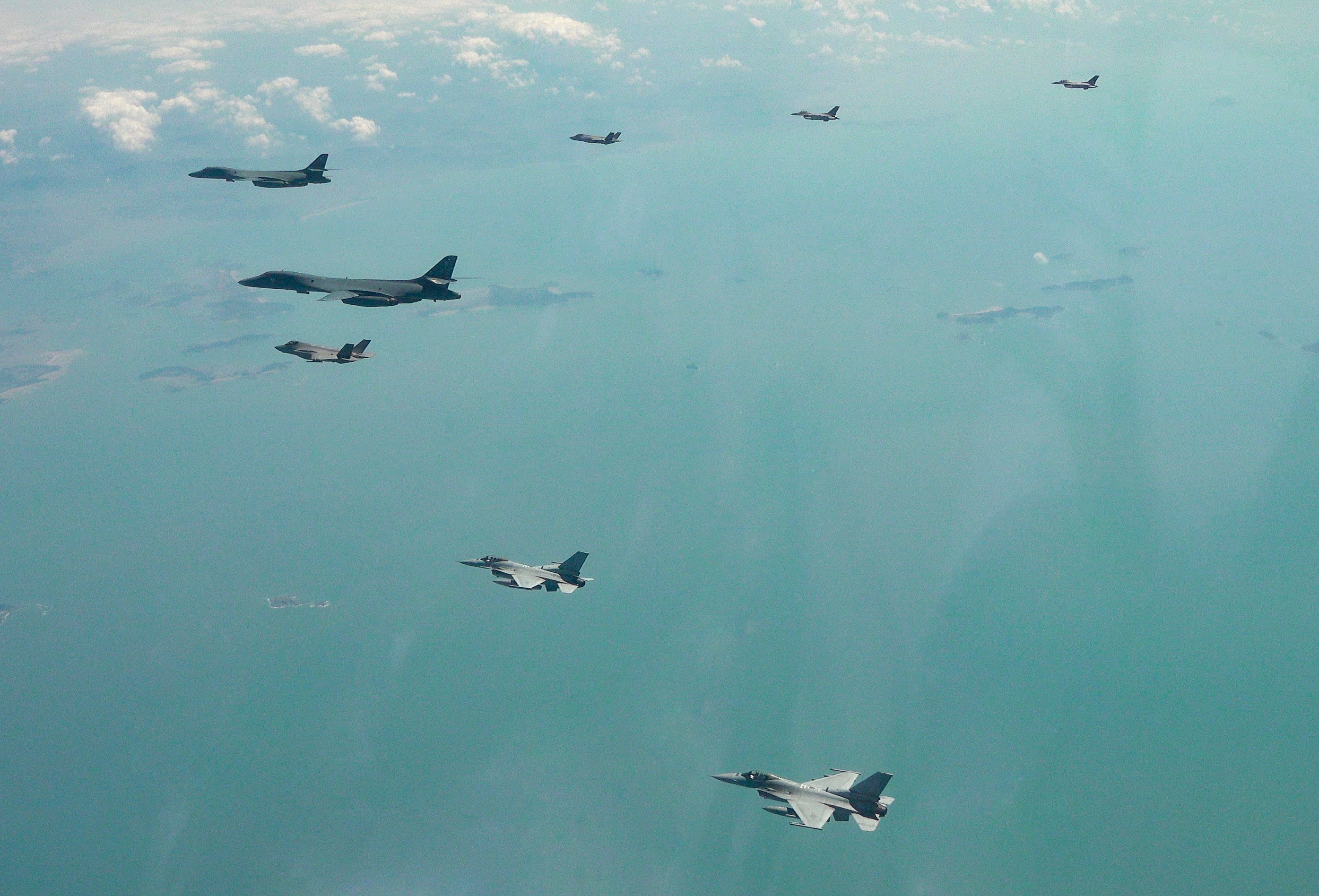North Korea issues threat after US flies long-range bombers over South
Pyongyang claims the routine joint drills are rehearsals for an invasion
North Korea has threatened to take “powerful” measures in response to the US flying long-range bombers over South Korea.
The US flew two B-1B bombers on Tuesday during an aerial drill accompanied by American and South Korean fighter jets, which Seoul framed as a direct response to the escalating threat of North Korea’s growing nuclear ambitions.
Pyongyang has previously claimed that the joint drills were a rehearsal for invasion.
The North's defence ministry in a statement said the deployment of bombers was "an open threat to the security of our state and a grave provocation that raises the military tension in the region to an extreme dangerous level,” according to the state-run Korean Central News Agency (KCNA).

In a veiled threat, the North Korean ministry warned the drill would harm US security, and said North Korea “will deter by dint of powerful force the US’s aggressive attempt”.
The joint drill held in South Korean airspace, featuring F-35A and F-16s, marked the latest in a series of demonstrations of the extended deterrence posture of both allied nations.
"This training was conducted to showcase the integrated ROK-US extended deterrence capability and strengthen the interoperability of our combined forces," the South's defence ministry said, referring to the country by its official name Republic of Korea.
The drill was "in response to the continuing and sophisticated threat from North Korea’s nuclear and missile programs", it said.

The US and South Korea routinely hold joint military exercises they describe as defensive in nature. But North Korea calls them an invasion rehearsal and is particularly sensitive to the US mobilization of strategic assets such as long-range bombers, aircraft carriers and nuclear-powered submarines.
North Korea often test-launches missiles in response to flyovers of B-1B bombers, which are capable of carrying a huge payload of conventional weapons.
Animosities on the Korean Peninsula are running high as North Korea continues weapons tests designed to modernise Kim Jong Un’s nuclear arsenal and supports Russia’s war against Ukraine by supplying weapons and troops.
Since his inauguration, president Donald Trump has repeatedly boasted of his personal ties with Mr Kim and expressed his willingness to reach out to the North Korean leader to revive diplomacy.
On 31 March, Mr Trump called the North Korean leader “a very smart guy” and North Korea “a big nuclear nation.”
Mr Trump said he and Mr Kim “have a great relationship” and that “there is communication,” though there are no known public negotiations and North Korea hasn’t publicly responded to Mr Trump’s outreach.
Bookmark popover
Removed from bookmarks